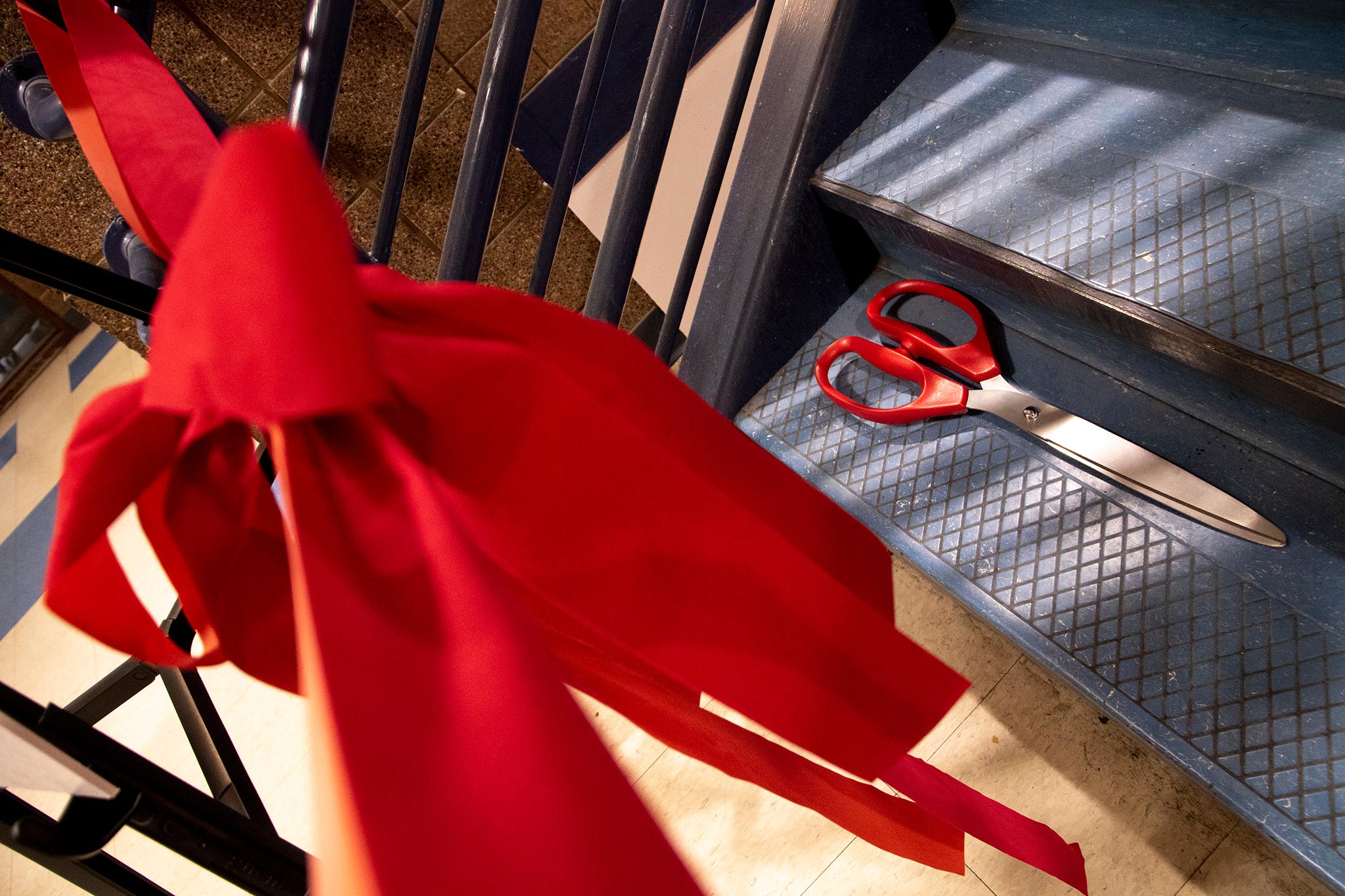A little flexibility can go a long way.
Take a decision to have Samaritan House cooks prepare mac and cheese and other kid-friendly meals for the younger residents of the family rooms at the Curtis Park shelter.
"That was one of the biggest changes I was excited for," Sharon Richey, who stayed at Samaritan House with her son earlier this year, said Wednesday as she toured the family room floor that was recently refurbished by the archdiocese's Catholic Charities of Denver.
The menu was previously somewhat repetitive.
"That was one of the things the parents really struggled with here, was to get their kids to eat the meals," said Richey, who added that despite the issue with meals, Samaritan House helped her move on to the job and permanent housing she has now.
Trisha Clifton, director of resident life at Samaritan House, said, "We understand that children's palates are different than adults. We want to make sure they continue to thrive and grow while they're staying with us.
In addition to macaroni and cheese, the new offerings include chicken nuggets and spaghetti. A donor provided a new microwave for the kitchen, so kids meals prepared in advance can be heated when needed. The culinary changes could take some pressure off parents.
"Being homeless is hard enough," said Josh Zielinski, who manages the shelter's family services.

Zielinski added his staff had been contemplating how to renew the "mind, heart and spirit" of the shelter while construction teams in recent months physically transformed the third floor, which is reserved for families experiencing homelessness. The results of the construction were unveiled at a celebration Wednesday. It might take a bit longer to see the impact of other changes, which Zielinski said would include ensuring that attention was paid to the trauma endured by family members.
Richey found the Samaritan House staff sensitive to her mental state and that of her 12-year-old son. She left home because of domestic violence and spent 20 months in emergency shelters before coming at the end of last year to Samaritan House, where families take part in a 120-day program aimed at helping them move on to permanent housing.
"Homelessness is a full-time job," Richey said. "It's so difficult to bring yourself back up, to get your legs back under you."
She now has an administrative job at Bayaud Enterprises, which provides employment and other services to people experiencing homelessness. Richey is hoping for a promotion soon. She and her son moved into their own home with Denver Housing Authority support just before Samaritan House closed its family floor for construction in April.
The renovations included a reconfiguration that created four new rooms, bringing the total to 25. Two of the new rooms were larger than had been available before the renovation to accommodate big families. Even before the renovation, Samaritan House was the largest provider of family shelter in Denver.
During a Mass marking the floor's reopening on Wednesday, Rev. Michael Suchnicki related the story of Joseph De Veuster, better known as Father Damien, who traveled to Hawaii in the 19th century to care for lepers.

"He saw a great need. A great need," said Suchnicki, who has been the chaplain at Samaritan House for two decades.
"I know that you can see there's a great need here" to shelter and support people experiencing homelessness, he added. "A great need."
According to the annual point in time survey of homelessness, Colorado in 2018 was among five states where more than a quarter of unsheltered people experiencing homelessness were part of families with children. The national rate of just under 10 percent.
The Denver Rescue Mission, Volunteers of America and the Salvation Army were among the service providers who sheltered families who had been at Samaritan House when construction began.

The Salvation Army also recently remodeled its facility for families experiencing homelessness. When the Salvation Army's Lambuth Family Center on Federal Boulevard reopened, its managers relaxed curfews and regulations about when residents could be in common areas. The rule changes made it easier, for example, for parents whose work schedules keep them out late.
At Samaritan House, Zielinski said similar changes could be difficult at his facility. While the Salvation Army's Lambuth Family Center is freestanding, Samaritan House also provides emergency shelter for up to 300 men every night.
"We do have to still, first of all, guarantee safety of children," Zielinski said, but added policy changes were part of a "bigger building conversation that we're starting to have."
The city, meanwhile, is looking broadly at how to improve shelter services. In an economy where housing costs have outstripped earnings, shelters have been increasingly providing a roof for seniors on fixed incomes as well as people who are employed. Families, women and young people also are seen as poorly served by the traditional model of offering only overnight beds to people who are not part of families or couples.












